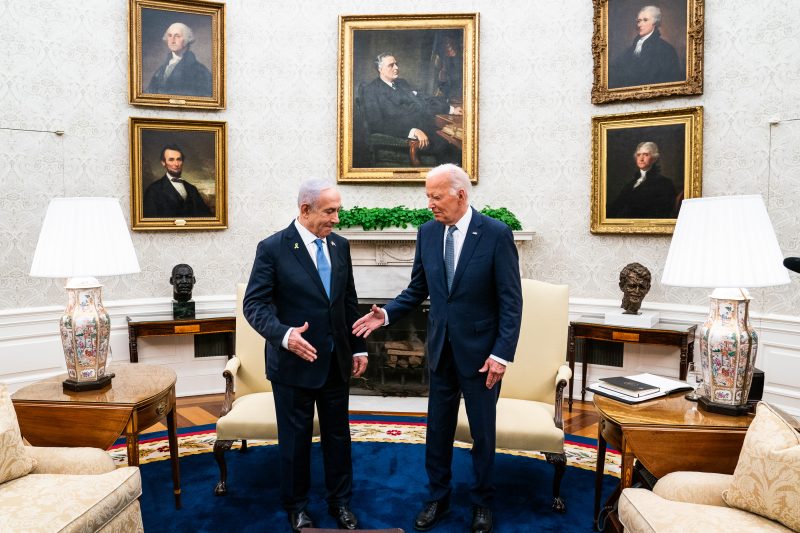The recent visit to the United States by Israel’s Prime Minister Benjamin Netanyahu has ignited heated debates and criticisms regarding the lack of a concrete plan for peace in the region. Critics argue that the visit failed to provide any workable solution or roadmap for a sustainable peace between Israel and Palestine.
One of the key criticisms leveled against Netanyahu is his government’s continued expansion of settlements in the West Bank, which many view as a significant obstacle to peace negotiations. The expansion of settlements not only violates international law but also exacerbates tensions between Israelis and Palestinians, making it increasingly difficult to reach a peaceful resolution.
Moreover, Netanyahu’s reluctance to endorse the two-state solution has further fueled skepticism about his commitment to achieving peace in the region. The two-state solution, which calls for the establishment of an independent Palestinian state alongside Israel, has long been supported by the international community as the most viable path to peace. However, Netanyahu’s government’s actions and statements have cast doubt on its willingness to accept this framework for peace.
Critics also point out that the lack of substantial progress on major issues such as Jerusalem, refugees, and borders during Netanyahu’s visit reinforces the perception that the Israeli government is not fully invested in reaching a lasting peace agreement. These unresolved issues remain at the core of the Israeli-Palestinian conflict and must be addressed comprehensively in any peace negotiations.
Furthermore, the absence of direct engagement with Palestinian leaders during Netanyahu’s U.S. visit has been criticized as a missed opportunity to demonstrate a genuine desire for peace and dialogue. Meaningful negotiations require direct communication and trust-building between the parties involved, and the failure to engage with Palestinian leaders sends a discouraging message about Israel’s commitment to a peaceful resolution.
In conclusion, Netanyahu’s recent U.S. visit has drawn criticism for its failure to present a clear and workable plan for achieving peace in the region. The continued expansion of settlements, reluctance to endorse the two-state solution, lack of progress on key issues, and absence of direct engagement with Palestinian leaders have all contributed to doubts about the Israeli government’s commitment to resolving the conflict. Moving forward, it is essential for all parties involved to demonstrate genuine willingness to engage in constructive dialogue and negotiations to create a sustainable and just peace for both Israelis and Palestinians.

